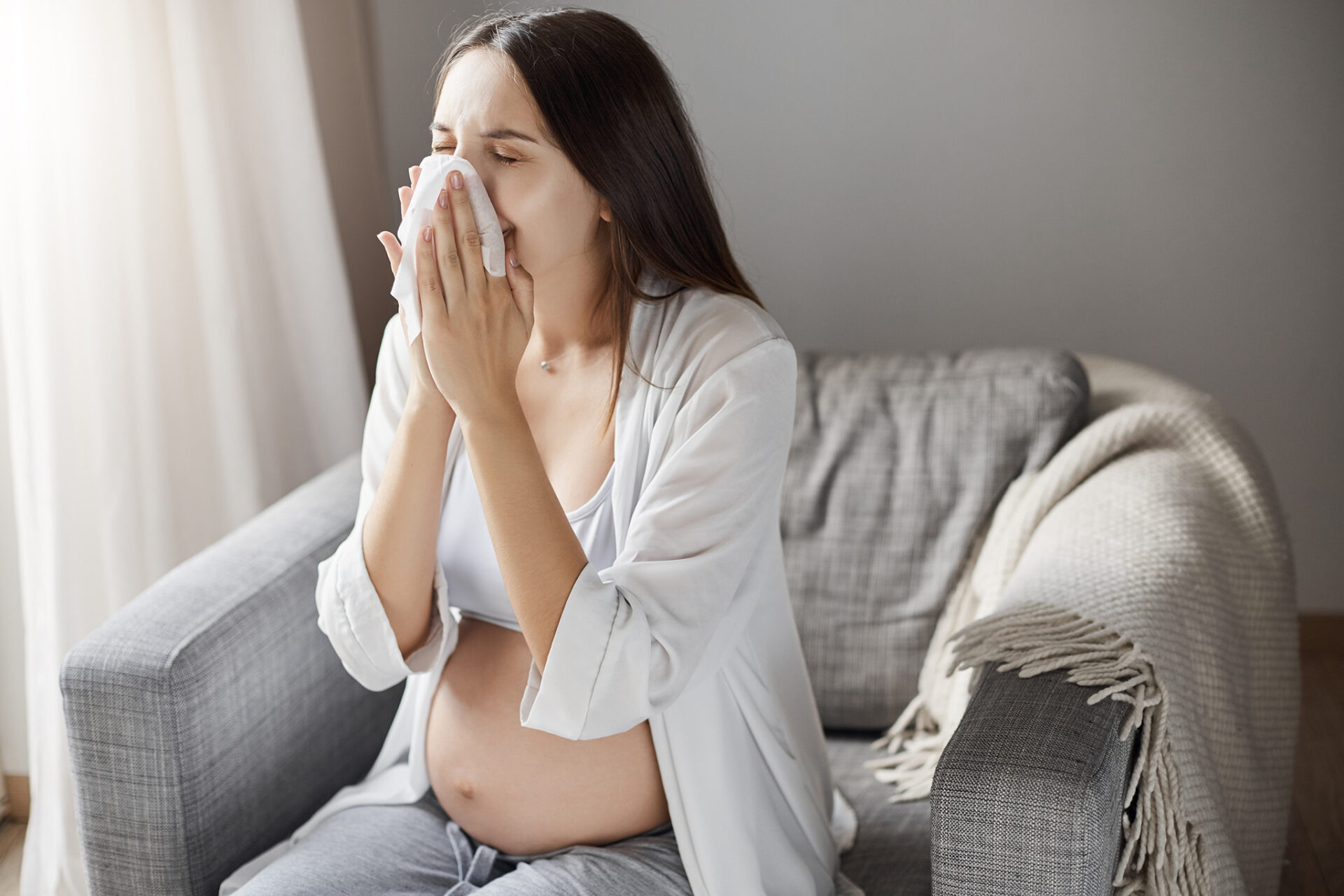HIGHLIGHTS
20 December 2020
5 yoga poses for couples to Enhance your relationship with your partner, level up your happiness in bed.
READ MORE20 December 2020
7 the procedure takes care of yourself and the wife before collecting eggs-collecting sperm.
READ MORE20 December 2020
Protein, a key nutrient of a woman, preparation for pregnancy- preparation for an egg collection.
READ MORE
Why Is It Important for a Health Check Up for Both Male and Female Before Getting Pregnant?
READ MORE
Destination IVF: Why Bangkok is a Premier Choice for International Patients Seeking Fertility Treatment
READ MOREPregnancy And Allergies: How to Manage and Prevent Them
 16 May 2023
16 May 2023

Allergies are very common, with countless people suffering around the world. For most people, allergies are irritating and often inconvenient. For others, they can be far more dangerous.
Regardless, many pregnant women with allergies may be concerned about how their allergy might affect their baby. The good news is that a mother’s allergy will rarely do the baby harm, although it’s still a good idea for pregnant women to avoid and manage allergens for their well-being and comfort.
Be Sure Exactly What Your Allergies Are
Most people will already know exactly what they’re allergic to, but some might not be completely sure. What’s more is that many people will only suffer allergy symptoms for the first time when pregnant, meaning the patient is unlikely to know the cause.
In such cases, it’s a good idea to have an allergy test performed to help the experts identify what you are allergic to. The tests are easy to take and the results will come quickly, helping you get the appropriate treatment if necessary.
In some cases, your symptoms might not be down to an allergy at all, so it’s best to have the right treatment at and. For example, many women experience nasal congestion during pregnancy, which could easily be mistaken for an allergy.
Avoiding Allergens
When you know exactly what you’re allergic to, you can then try and avoid contact with the allergen, although this is often easier said than done.
For example, pollen is one of the most common causes of allergic reactions and is carried in the air, making it difficult to avoid. As such, it’s a good idea to try to avoid going out in the daytime if you have pollen allergies and try to keep doors and windows closed. Other allergies can involve animals, so you may also need to avoid certain pets where possible.
However, no matter how much you try and avoid allergens, it’s all but inevitable that you will come into contact with one at some point. This leads to the question of whether or not you can take allergy medication while pregnant and, generally speaking, the answer is yes.
Which Allergy Medications Are OK for Pregnant Women?
One of the most common anti-allergy medication types is antihistamines. This medication helps prevent your body from creating histamines, which are an important part of your immune system. Histamines help ensure the body reacts to remove intruders like viruses or bacteria from your body, but will sometime react to harmless items like pollen.
Because antihistamines reduce the volume of histamines your body makes, they help prevent often uncomfortable allergic reactions.
The good news is that most antihistamines are perfectly safe to use when pregnant, giving you relief from the symptoms. If you’re unsure, then you should always consult with a doctor first to be on the safe side. This is especially the case for women taking other medications or have medical conditions. The doctor will likely give the all-clear in most cases and potentially recommend other treatments.
Other potential remedies include:
Watch Pollen Counts
As mentioned, avoiding pollen can be difficult and it’s not practical to stay inside your home all the time. However, you should easily find the expected pollen count for your area online. Avoiding going out during high pollen counts will help prevent a reaction.
Wear a Mask
Wearing a protective mask will help prevent you from inhaling certain allergens, potentially preventing a reaction. It’s best to look for something made with allergies in mind to be sure the mask is effective.
Make a Nasal Spray
Creating a saline nasal spray will help relieve allergy symptoms in many cases. Such a spray is easy to make with some warm water mixed with salt and added to a spray bottle or similar. This solution can help relieve the symptoms of allergic reactions, while also helping with non-allergy related conditions.
Shower Regularly
Showering and changing clothes regularly is another effective method of helping to limit your exposure to allergens. This is especially the case when coming in from outside, bearing in mind that pollen and other allergens can stick to your clothes, potentially causing a reaction later.
Summary
If you’re planning on getting pregnant and you’re concerned about allergies, the good news is that there’s nothing to worry about for the vast majority of people. It’s unlikely your baby will be harmed in any way, although there is a chance that they will inherit your allergies from you.
You can also take steps to help prevent coming into contact with allergens, and medication is also available that will help relieve symptoms. But don’t forget to ask a professional if the medication is safe for pregnant women, especially if you have a medical condition.
Overall, pregnant women can usually keep themselves comfortable and avoid allergic reactions provided they take the appropriate precautions.
HIGHLIGHTS
20 December 2020
5 yoga poses for couples to Enhance your relationship with your partner, level up your happiness in bed.
READ MORE20 December 2020
7 the procedure takes care of yourself and the wife before collecting eggs-collecting sperm.
READ MORE20 December 2020
Protein, a key nutrient of a woman, preparation for pregnancy- preparation for an egg collection.
READ MORE
Why Is It Important for a Health Check Up for Both Male and Female Before Getting Pregnant?
READ MORE


















